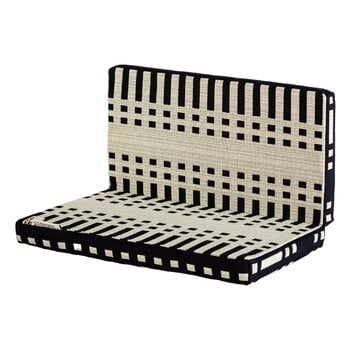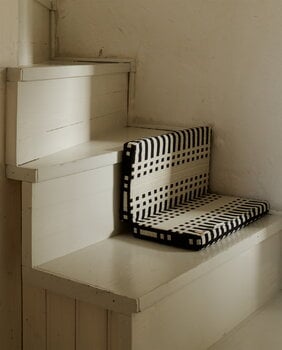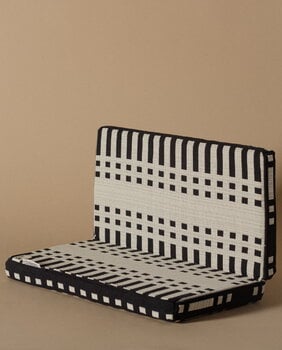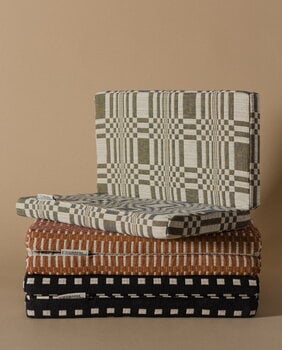Lokal Helsinki's Step pillow is the perfect cushion especially for sitting on stairs. When opened, the Step pillow is ideal as a seat cushion on the chair or on the floor. The playful and versatile cushion is designed by interior architect and designer Hanni Koroma, and upholstered in high-quality and beautiful Nereus fabric by Johanna Gullichsen.
Hand-made in Finland, the Step pillow is part of the Lokal Kollektion series by the Helsinki-based gallery Lokal. The collection consists of unique, locally-manufactured products made in small-scale production, many even by hand in the designers' own workshops.











